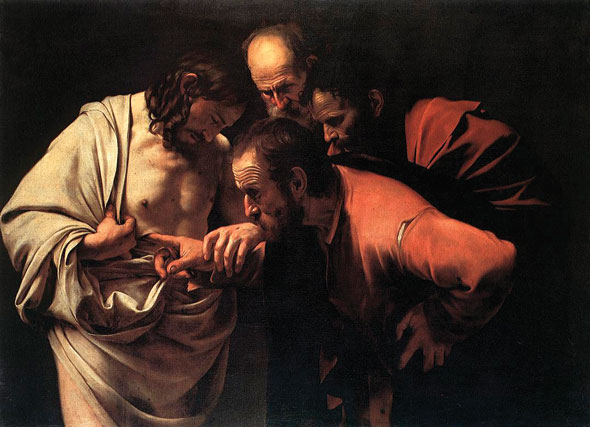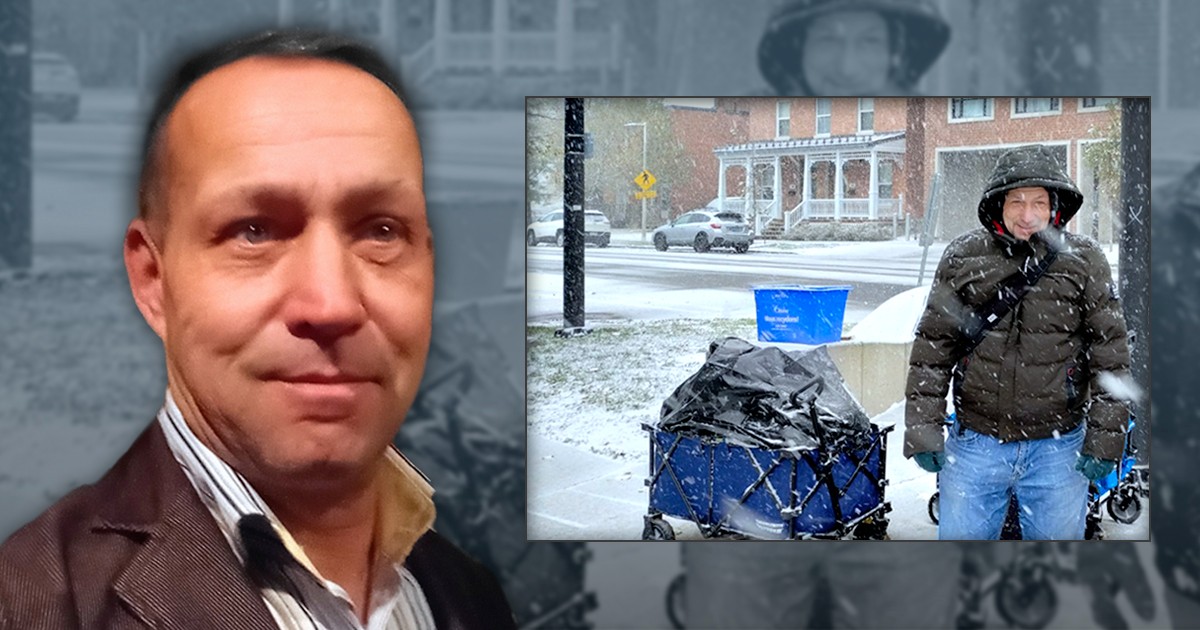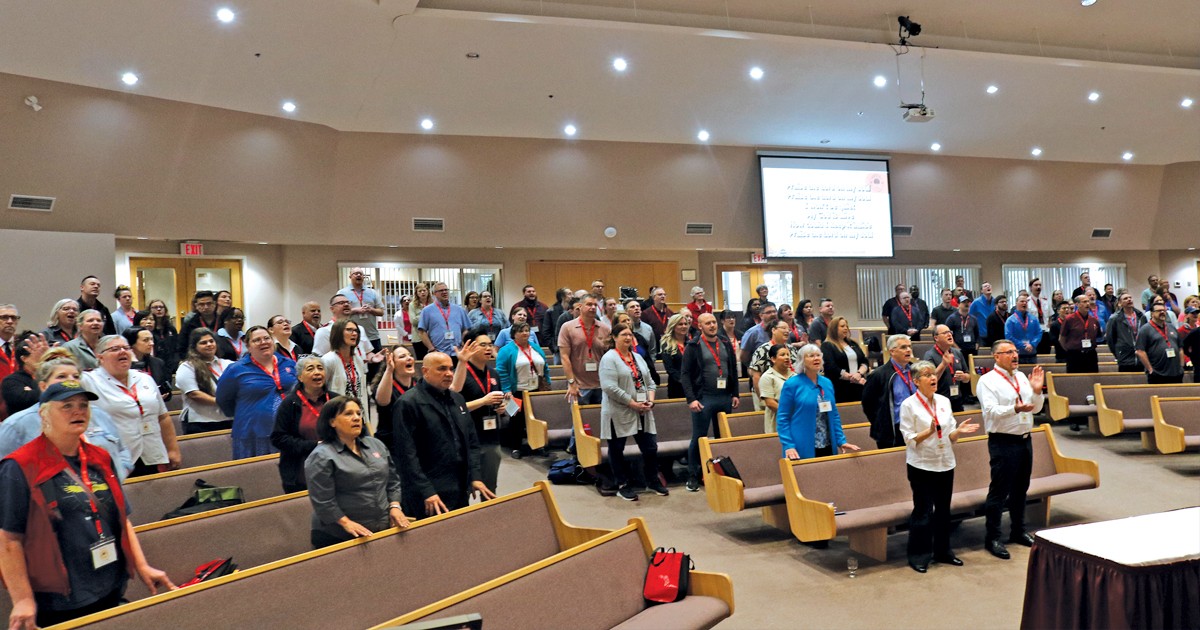 As I write this, I have just returned home from a memorial service for a 22-year-old man. The autopsy showed that his body succumbed to pneumonia that had gone undetected until it was too late. He had just begun to blossom in the restored faith of his early teens, and we were hopeful for him and the new possibilities for his future.
As I write this, I have just returned home from a memorial service for a 22-year-old man. The autopsy showed that his body succumbed to pneumonia that had gone undetected until it was too late. He had just begun to blossom in the restored faith of his early teens, and we were hopeful for him and the new possibilities for his future.
My faith affirms that resurrection life has begun for him, yet my heart needs an Easter morning. I also realize that a stark presentation of the theology of the resurrection and afterlife is not what his mother needs now—even though she has a personal faith in Christ.
On the other hand, I'm not asking for a “warm fuzzy” sentiment found in a Hallmark sympathy card. Rather, I find my comfort in the candid biblical accounts of people who have struggled with life, death and resurrection. The “theology” of the resurrection, without a context, is sterile. To have power, our faith must come face to face with the earthly realities of daily existence.
For this reason, I want to take a closer look at the Bible's resurrection narratives. I believe the Holy Spirit has something more to teach us through these stories. The written record is about people—how they were feeling, what was going on in their heart, how their relationship with Jesus was affected.
In the Father's plan, the resurrected Christ appeared to his followers over the course of 40 days, hovering somewhere between time and eternity. During that period, writes Paul, “Jesus appeared to Cephas [that is, Peter], and then to the Twelve. After that, he appeared to more than 500 of the brothers and sisters at the same time, most of whom are still living…. Then he appeared to James, then to all the apostles, and last of all he appeared to me also” (1 Corinthians 15:5-8).
Jesus could have risen, shown himself to the remaining disciples and been restored to the glory of his rightful place in Heaven before an hour was through. But God had a greater purpose for the disciples during those 40 days than solely to establish the credibility of Jesus' resurrection.
Jesus the Messiah is precious to me not just when I see him in the brilliance of his resurrected form, but also as he takes the time to interact with individuals in significant ways. While the transformation to a glorified body had taken place, in this Jesus was unchanged: people always came first. He had ministered to the broken, the fickle, the demented, prostitutes and other “sinners,” the grieving, those whose hope had long since expired. He had even ventured to give time to proud self-serving Pharisees. And whether we're honest enough to admit it or not, each of us fits somewhere on that list.
Easter offers me hope in the swirl of life where I continue to strive for significance, because at times I can see myself reflected in the disciples—those with drained hopes, with doubts, those who have disappointed God.
Easter is for those who have lost hope (Luke 24:13-35)
The disciples journeying to Emmaus on resurrection Sunday harboured no bitterness in their hearts toward Jesus. They still believed in him as a great prophet. He was still the theme of their conversation. But they had lost all hope in his ability to do what they thought he was going to do.
However noble Jesus was, however high and holy his ambition had been, he had been crucified, his body sealed in a tomb. He had failed in his mission to redeem Israel and with that failure their great hopes had come crashing to the ground.
As the travellers talked together, however, “Jesus himself drew near, and went with them” (Luke 24:15 KJV). Though unrecognized, the stranger in their midst was Jesus himself. In a natural way, he gently chided them for not recalling the scriptures of their youth, the activity of God through history and the prophecies about the Messiah.
At times of doubt, despondency, distress and fear, Jesus arrives quietly to instill confidence, to remind us that God's plan is still in effect. He may come unrecognized, we may not even be aware of his presence, but our hope is slowly reborn. Easter's message is hope for a dying marriage, hope that an adult child who's abandoned the faith of her youth can yet know Christ, hope that an addict can reclaim control of his life. All is not as it may appear because Jesus joins us in the journey.
Easter is for those who have doubts (John 20:24-31)
Think of Thomas, poor man! For eternity he will be manacled to the suffix “The Doubter”—as if any of us would have been any better. I wonder if Thomas wasn't so much a skeptic as he was angry. Perhaps he didn't know how to channel his emotion. The professional counsellor tells us that anger is one of the stages of grief. Was Thomas exhibiting a lack of faith, or was he wading through the deep waters of his own sorrow?
As with the others, he had invested everything in following Jesus. All his eggs had been confidently placed in this one basket. His hopes, his future, his ethos had been just as surely smashed as, with each hammer stroke, the spikes had been driven through the yielding flesh of his Master. Perhaps Thomas had been absent from the funeral reception in the Upper Room because he felt he couldn't be with them—he needed solitude.
“We have seen the Lord!” the disciples declared exuberantly. Thomas' response had been almost mocking: “Unless I see the nail marks in his hands and put my finger where the nails were, and put my hand into his side, I will not believe” (John 20:25).
Flannery O'Connor, a Roman Catholic author who suffered from a debilitating case of lupus, wrote in a letter to a friend: “I think there is no suffering greater than what is caused by the doubts of those who want to believe. I know what this torment is, but I can only see it, in myself anyway, as the process by which faith is deepened. A faith that just accepts is a child's faith, and all right for children, but eventually you have to grow spiritually as every other way—some never do!”
Whether or not you believe in the resurrection ultimately comes down to a matter of faith. But as thinking adults, our belief implies prior reasoning. We must not be afraid to explore our faith in depth and to realize that our probing does not mean that God loves us any less because we have doubts and struggles.
The intervening week between Jesus' meetings with the disciples must have been spiritually excruciating for Thomas. When the Master finally stood smiling before him, the disciple's exclamation is not the reaction of one coerced to admit a fact he'd rather deny. Rather, Thomas' words overflow from the depths of his soul as he falls to his knees and embraces Jesus in worship and joy: “My Lord and my God!” (John 20:28).
Jesus' words of this last beatitude are meant as much for you and I as for Thomas: “Because you have seen me, you have believed; blessed are those who have not seen and yet have believed” (John 20:29).
Our doubts, unanswered prayers and challenging issues can be safely explored without condemnation. God is not afraid of our doubts and he can be trusted to draw us through them as a milestone on our journey to greater maturity. Easter can give us a re-invigorated faith.
Easter is for those who have disappointed God (John 21)
Let's take a closer look at the disciple Peter. I find the story in John 21 the most poignant and challenging of the post-resurrection encounters, as Jesus meets on the beach with his fickle friend.
For Peter, this conversation with Jesus was a pivotal point in his spiritual journey. Although he sat around the campfire with Jesus, his gaze was averted from the Master. His own words surely reverberated in his mind: “Even if all fall away on account of you, I never will” (Matthew 26:33). He remembers the sound of “I don't even know him!” echoing in the high priest's courtyard for the third time. Jesus had turned and looked at him. Peter had fled to hide his bitter sobs (see Luke 22:54-62).
Only a few weeks later, this awkward but necessary exchange takes place where three times the question is presented by Jesus, “Peter, do you love me?” It's important to understand the nuances of this repeated question. In the Greek language, there are four words which we translate into English as “love.” But the two words that are used here are agapao (self-sacrificing, self-giving love as celebrated in 1 Corinthians 13) and phileo (love between friends).
Twice, the Master asks the disciple, “Do you love (agapao) me?” In other words: “Peter, how deep is your love for me?” Twice, the response comes back, “Yes, Lord. You know that I love (phileo) you.” In effect, “Lord, I love you like I do the rest of my friends.” The third time, Jesus relents, and in his question, he chooses to use the word phileo: “Peter, are you even my friend?”
I've often thought, How sad that Peter's love didn't seem to measure up to what it should have been. Yet, perhaps it is significant to realize that Peter's bravado is now gone; he's stopped hiding his weakness from Jesus and the others. And while he's cringing inside, fearing the ultimate rejection, the Holy Spirit is working a change in him.
On the very shores where, three years earlier, a stranger from Galilee had invited Peter to “Follow me,” Jesus stands and issues the same invitation. No dictionary in Greek or English could find the words to express Peter's elation. In effect, Jesus is saying: “Let's begin again … the past is behind us … there is something more I need you to do.”
Easter is for those of us who have disappointed God. Whether we mangled opportunities he presented us with, harboured secret sin or broke promises, Easter's message is about forgiveness and restoration. It is no surprise then, to read Peter's synopsis years after, “In his great mercy [God] has given us new birth into a living hope through the resurrection of Jesus Christ from the dead” (1 Peter 1:3).
Whether our life journey takes us through moments of hopelessness, doubt or failure, we cannot encounter the risen Christ without being changed.
Photo: Caravaggio, The Incredulity of St. Thomas, 1601-1602









Comment
On Wednesday, April 15, 2009, Rob Jeffery said:
On Monday, April 13, 2009, Major George Prior [ R ] said:
Thank you
Leave a Comment